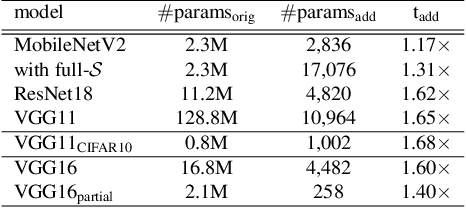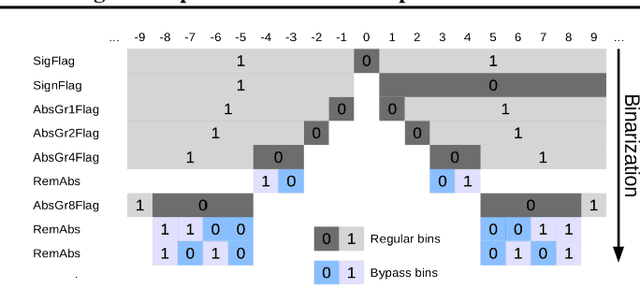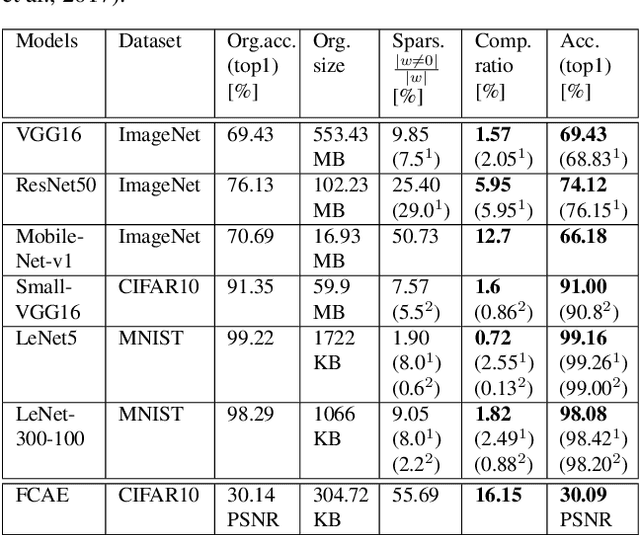Heiner Kirchhoffer
Adaptive Differential Filters for Fast and Communication-Efficient Federated Learning
Apr 09, 2022



Abstract:Federated learning (FL) scenarios inherently generate a large communication overhead by frequently transmitting neural network updates between clients and server. To minimize the communication cost, introducing sparsity in conjunction with differential updates is a commonly used technique. However, sparse model updates can slow down convergence speed or unintentionally skip certain update aspects, e.g., learned features, if error accumulation is not properly addressed. In this work, we propose a new scaling method operating at the granularity of convolutional filters which 1) compensates for highly sparse updates in FL processes, 2) adapts the local models to new data domains by enhancing some features in the filter space while diminishing others and 3) motivates extra sparsity in updates and thus achieves higher compression ratios, i.e., savings in the overall data transfer. Compared to unscaled updates and previous work, experimental results on different computer vision tasks (Pascal VOC, CIFAR10, Chest X-Ray) and neural networks (ResNets, MobileNets, VGGs) in uni-, bidirectional and partial update FL settings show that the proposed method improves the performance of the central server model while converging faster and reducing the total amount of transmitted data by up to 377 times.
DeepCABAC: Context-adaptive binary arithmetic coding for deep neural network compression
May 15, 2019

Abstract:We present DeepCABAC, a novel context-adaptive binary arithmetic coder for compressing deep neural networks. It quantizes each weight parameter by minimizing a weighted rate-distortion function, which implicitly takes the impact of quantization on to the accuracy of the network into account. Subsequently, it compresses the quantized values into a bitstream representation with minimal redundancies. We show that DeepCABAC is able to reach very high compression ratios across a wide set of different network architectures and datasets. For instance, we are able to compress by x63.6 the VGG16 ImageNet model with no loss of accuracy, thus being able to represent the entire network with merely 8.7MB.
 Add to Chrome
Add to Chrome Add to Firefox
Add to Firefox Add to Edge
Add to Edge